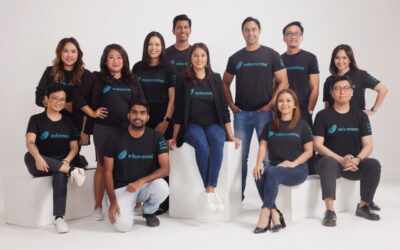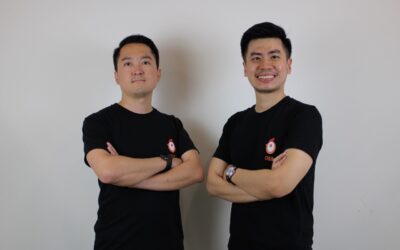Startups in Southeast Asia raised a record $25.7 billion in funding in 2021 alone; this was more than double the previous year. While this means that investors see great potential in businesses in the region, this also means that the competition here is fierce and it is not easy to stand out amidst the competitive landscape.
As such, in a bustling, highly competitive startup ecosystem like Southeast Asia’s, there is one golden question that haunts all founders and entrepreneurs. What do VCs want?
To help answer this question, we spoke with Eko Kurniadi, Investment Partner at Alpha JWC — one of the leading VCs in the region. With offices in Indonesia and Singapore, Alpha JWC has a team that brings together some of the region’s pioneer tech investors and experienced serial entrepreneurs.
With companies like Indonesian F&B unicorn Kopi Kenangan, Singapore’s largest AI-driven used car marketplace Carro, and fintech unicorn Ajaib in their portfolio, Alpha JWC is constantly on the lookout for companies and entrepreneurs that have the potential to rise and make a legacy impact.
Also read: What is Venture Capital? Definition, Benefits, How It Works
What do VCs in Southeast Asia want?
First things first, before delving deep into Alpha JWC’s unique expectations and experiences, we first try to understand what VCs and investors look for in companies in Southeast Asia.
Eko shares that VCs, especially international investors, generally have a prerequisite for various forms of validation and proof points before they make the final decision to invest in a company.
Commonly, they look for the following:
- Hockey stick growth patterns (hockey stick refers to sudden and extremely rapid growth after a long period of linear growth. The term is often used to describe what happens when a startup business finds its market niche and market conditions are positive). This means startups are experiencing a positive but unprecedented market reception spurred by unique trends that are favorable to the kind of products or services being offered by those companies.
- Market leadership, which can be evidenced through a solid historical track record in comparison to other similar players in the space, and with a significant preference from users and customers who choose and stick with the product/service.
- The presence of reputable investors in the cap table (A cap table, or capitalization table, is a chart typically used by startups to show ownership stakes in the business). Through this, investors will be able to pinpoint which startups are entrusted by other legitimate and reputable investors who are likely to share their values.
Eko explains that these are important checkboxes. However the above might not be apparent in the early days, especially in the early-stage rounds. That is where the next segment comes into play too in identifying early-stage startups to invest in.
Also read: Venture Capital Firms in Indonesia and Southeast Asia
Fundraising 101: Alpha JWC’s guide
Elaborating on what factors are crucial for Alpha JWC when selecting founders or businesses to invest in, Eko shared that the three most important factors that they consider when looking to invest are founders, market and product, and the “X-factor”.
He explains that the founder should have a vision and should be able to execute plans to achieve that goal while having the acumen to build the right team. “It is important for the founder to have clarity on what they want to build in the long term and have the fortitude to see it to fruition,” Alpha JWC prefers founders who are capable of executing their plans, and demonstrate great leadership qualities — reflected in their ability to build and hire world-class teams, and are inspiring and uplifting.
Market & product is another important element, Eko explained. The company should be targeting a sizable market, addressing the right pain points with the right product-market fit. Here, an important factor worth considering is looking at proven business models in a more mature market. Startups can always learn from the more mature and advanced markets like China or India, to try and understand what works and what doesn’t, while being cognizant of some differences in macroeconomic situation and customer dynamics.
And, last but definitely not least, the “X factor” is what matters a lot to Alpha JWC — it makes visionaries stand out. The “X factor” can be a significant advantage the team has, and this is not limited to things like a strategic backer — this ranges from the founder’s unique expertise to the team’s industry experience and from solid historical traction to various monetization channels and proprietary networks to an innovative business approach. The X factor is what ultimately sets them apart.
Also read: Fintech Investment: Definition, Tips, and Risks
Common missteps by founders: How not to turn off VCs
Indeed, “what do VCs want” is an important question to ponder, but another question worth contemplating is “what don’t VCs want”. What are some common missteps that founders make at the time of pitching to VCs?
Eko shared that one of the most common challenges is actually a very fundamental one: not being able to articulate the big problem they want to solve, their clear solution, and how it is unique or different from other players in the field, as well as the vision or end-goal of the company.
In fact, according to a CB Insights report, the number one reason why startups fail was “no market need.” Hence, having clarity on what problem you want to solve should be key to startups seeking funds.
One great example of founders displaying clarity of thought and succeeding is Ajaib: an Indonesian fintech startup that allows its users to buy and sell stocks, ETFs, and mutual funds. The founders of this online brokerage startup were very focused on serving the underbanked and millennials in the country. And, with a clear objective at the core of the company, the founders were able to deliver a trading platform that is incredibly easy to use and onboard for retail investors. They continued to optimize and reiterate their product offerings for the increased benefit of users. As a result, today, they are one of the leading fintech in the country and among the fastest to reach unicorn status in less than three years.
Also read: Best Venture Capital in Southeast Asia
Another misstep as shared by Eko is the gap between the founders’ expected valuation and the justified fundamentals of the company at that juncture. For example, many founders don’t understand that good early traction might not necessarily warrant a significantly high valuation. “Getting the highest possible valuation should not be the goal for early-stage founders. The priority should be finding the right partner who can help you achieve unicorn or even decacorn status,” says Eko.
Finally, lack of alignment and non-targeted discussions with too many investors is another major misstep. “Founders need to know the investor’s landscape, appetite, and value-adds that are relevant to their business. Talking to too many people will only create a distraction and potentially unnecessary noise in the market, Eko explained.
The ultimate rundown of tips for pitching and fundraising in Southeast Asia
Eko suggests that as long as startup founders focus on planning their cash flow and runway, layout key milestones, and hit each of those to show their execution capabilities, they will have a higher chance of securing funding.
He shared that founders should ask for a reasonable investment amount that can be justified. There is enough evidence to back this — one case in point is the infamous Quibi failure.
And, finally, it is crucial to LISTEN to investors’ feedback and criticisms, address those accordingly, and come out stronger in the next meetings with them and/or other investors. This is simply because an investor brings in more strategic thinking where founders might sometimes be bogged down with everyday operations. An investor’s unique perspective with a more commercial inclination and the added advantage of experience from his many other investments is always something that founders can leverage for better decision-making.
For acing the pitching game, Eko recommends that founders should kick off with a concise explanation of their mission and solution. “These need to be delivered with clarity and conviction,” he shared. Founders should have a powerful elevator pitch that will make an impression on a busy audience that hears numerous pitches on a daily basis. “To aid in their storytelling, founders should prepare materials to visualize key industry statistics, commercials, and future use of proceeds”, he added.
In a nutshell, fundraising and pitching don’t necessarily have to be painful and tedious. With the right approach and clear goals in mind, startup founders can thrive in a bustling ecosystem like Southeast Asia and eventually grow beyond international boundaries.
To learn more about fundraising and pitching in Southeast Asia, watch out for the next ‘Alpha JWC Startup Series article.
This article is originally posted on e27.



